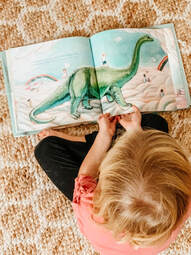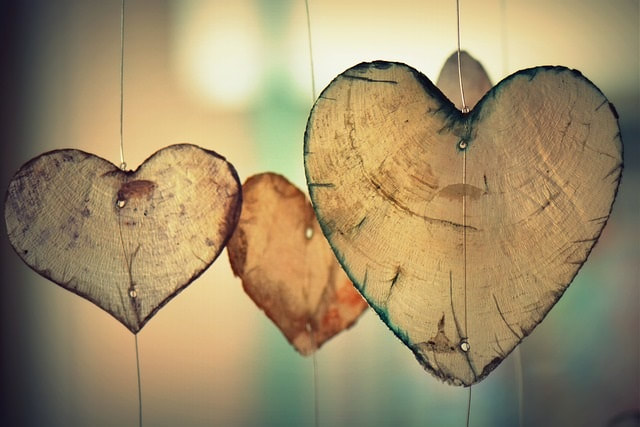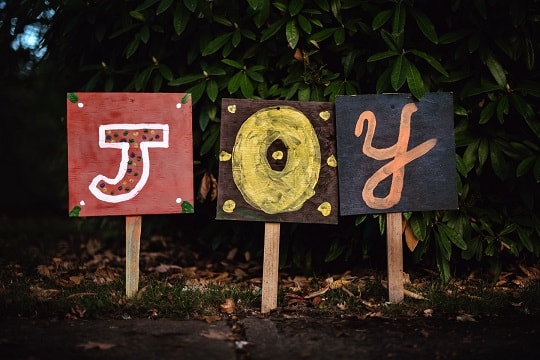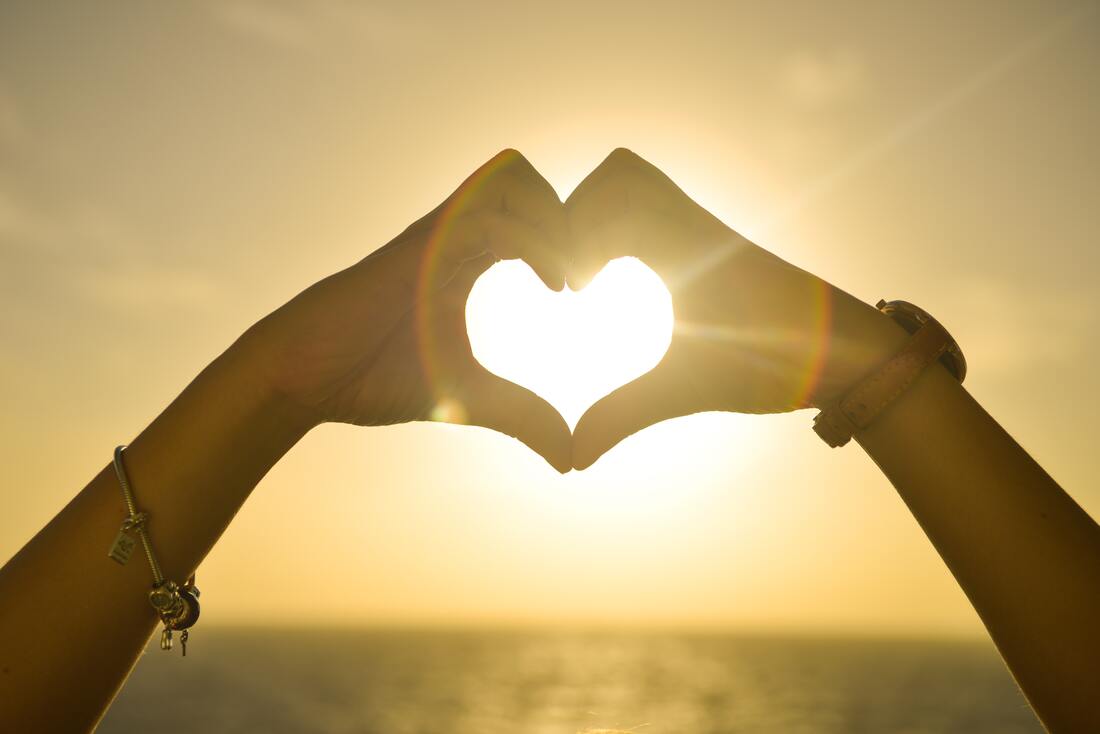|
By: Stephanie Gordon EPLA Editor If you have experienced miscarriage, you can understand the fear in how you go about day to day life. When I became pregnant with Eloise after my miscarriage, I was obsessed with triple checking ingredients on labels, not painting my nails, even skipping the jump rope at the gym. Sometimes, out of fear, we practice precaution with our bodies and doctor’s appointments. “Would chiropractic harm my young unborn baby?” … “Can my body handle it?” … “Can an adjustment cause miscarriage?” While this post might not focus on miscarriage or loss specifically, I do receive many questions on chiropractic and early pregnancy since my husband is a chiropractor. Precaution and concern are very much commendable, and chiropractic is very much safe during early pregnancy. I sat down with my husband, Dr. Matt Gordon, and he tells us why. Why chiropractic doesn’t cause miscarriage or wouldn’t harm the fetus: The chiropractic technique I use at our office is called the Webster technique. It is a low force and low amplitude adjustment that focuses on treating ligaments and muscles. Think of an adjustment like a yoga class. You can compare it to a direct outcome while trying to change alignment, rebalance spinal muscles and ligaments and bones and joints. It’s completely natural and focused and there’s no danger to mother or baby. Why chiropractic care during pregnancy: Many pregnant mothers I treat find relief during pregnancy, especially as their pregnancy progresses. Chiropractic significantly decreases the chance of back labor and encourages shorter labor times. Adjustments relieve lower back and hip pains, which are most common during pregnancy. If you are having morning sickness during early pregnancy, there are options for that, too. Supplementation and manipulating the stomach and diaphragm might aid the situation. This would be a positive route to consider avoiding an adverse reaction to a pill. When to take precaution: Unless you are on bedrest or if you’re experiencing a lot of vaginal bleeding, strong cramps, or premature labor, an adjustment wouldn’t be advised. If you are completely healthy, chiropractic would benefit your body and growing baby. Be sure to share all information with your doctor(s). I know that after having experienced miscarriage, fear is at an all-time high. I have experienced two successful pregnancies, and I received chiropractic care throughout each from my husband. I will always be an advocate for chiropractic care during pregnancies. So I will say, yes, go! But, I will also suggest listening to your body. Do what feels right. You know best. Share your medical information with your doctor/s so you can receive proper treatment. If you are currently experiencing the gift of pregnancy, I am wishing you lots of love, trust, and a comfortable, aligned body! Stephanie Gordon is a paleo food enthusiast, wife, full-time SAHM, marketing professional, and blogger.
2 Comments
By Carissa Caples EPLA Staff Writer
I was sitting in my high school journalism lab when I first found out about the “12-week rule.” I distinctly remember my teacher explaining to me that the social etiquette is to not reveal that you’re pregnant until the second trimester of your pregnancy in case you have a miscarriage. I remember feeling confused and unsettled—I’m someone who always tries to let people in on what’s going on with me, so the thought of hiding something so pivotal was very foreign to me. I thought about my future and really expected that when I was pregnant, whether I was going to lose the baby or not, I’d want people to know about it. But I also succumb easily to the pressures of social etiquette, so I just accepted the upsetting truth that those were the rules and figured that someday I’d understand. As I got older and became more involved in conversations surrounding pregnancy and motherhood, I began to run into many similar startling “rules” that lead to women struggling in silence. But there’s good news! Now that I’ve gotten older and observed the rise of authenticity culture in media, I’ve been thrilled to learn that there are so many people and organizations learning to break stigmatizing “rules” like these and bring early pregnancy loss into the spotlight so grieving women can access support from a community of women who have experienced the same type of loss. Here are a few articles I found helpful in my research about how women are breaking the silence and sharing openly about their grief. 1. Katy Lindemann: “The 12-Week Pregnancy Rule Makes the Pain of Miscarriage Worse” https://www.theguardian.com/commentisfree/2019/oct/07/12-week-pregnancy-rule-miscarriage-shame-failure This lively opinion article from The Guardian explains why rules like the “12-week rule” that were originally meant to help women can actually be harmful, and argues that we need to be more open about both pregnancy and miscarriage. Katy shares her personal experience with miscarriage and talks about how changing our societal rules around pregnancy announcements could benefit women. 2. Erin Magner: “How to Talk About Miscarriage, According to a Psychologist” https://www.wellandgood.com/good-advice/jessica-zucker-how-to-talk-about-miscarriage/slide/2/ It’s great that people are explaining why our society’s approach to talking about miscarriage is bad, but sometimes we can get so bogged down in what not to do that we lose sight of the things that could actually be helpful. Since we do need to change the way we talk about pregnancy and miscarriage, here are some constructive tips surrounding how to talk about a miscarriage. It specifically covers how to talk to a friend in a helpful way if she’s had a miscarriage, and how to speak about your own miscarriage in a constructive way. 3. The Bump Editors: “18 Celebrities Who’ve Opened Up About Miscarriage” https://www.thebump.com/a/celebrity-miscarriages Looking for examples of how to open up about your miscarriage? Or have you been hoping to hear stories from people you’re familiar with? This article highlights 18 celebrities who have shared their stories of loss, in an attempt to make you feel less alone (because even Beyoncé deals with this stuff). Start Here If you have always felt like someday you’d like to share your experiences with miscarriage, our goal is to provide a place to start. Feel free to comment below or contact us to share your story with people who truly care, or to ask us questions about how to go about sharing your experiences with others. We are here as a resource for you, and we want to help you as much as possible. If you have a friend or loved one who is currently experiencing grief from losing a child, we are here to help you as well. Try to reach out to them today and use some of the tips provided in article #2, and let us know how it goes! And as always, if you have any questions for us about how to go about it, please reach out to us at [email protected]. Carissa Caples is a Senior Professional Writing and Information Design major at Cedarville University and staff writer for the Early Pregnancy Loss Association. By: Nick Carrington EPLA Editor “We’re pregnant,” a loved one told me enthusiastically, her smile stretching from ear to ear. Usually, I’d feel unadulterated joy that would burst out of me. But this time, that wasn’t the case. Mixed in with the excitement was that feeling - an anxiety that makes the heart beat faster. I could feel it well up inside me, swiftly ascending through my body. For a moment, I thought it would take over my face and express something I did not intend. But as that anxiety hit my throat, I squelch those feelings, put on a smile, and voiced a hearty congratulations. I didn’t want those mixed emotions; it felt unfair to my loved ones. They had a new son or daughter, a precious gift from God. It should be a time of rejoicing. However, this couple had suffered a miscarriage in the past and major pregnancy complications more recently. Their pain was a wound on my heart that may never fully heal. Later that week, I had time to reflect on those feelings. That anxiety certainly did not mean that I wanted them to stop having children. As I came to understand it, the feeling came from two related places: a fear that my loved ones would lose a child and a fear that I would lose that niece or nephew. Those are legitimate fears. While statistically, mothers are unlikely to have multiple miscarriages, the possibility remains. We just don’t know why many miscarriages happen. Still, in the moment when I learned about the pregnancy, I knew that leaning into the joy was the best response. My loved ones had not forgotten the despair of previous losses. They remembered the tears, pain, and long, broken nights. They remember those children they planned for and wanted to hold. My loved ones did not to hear my concerns; they undoubtedly had the same ones. When we are told of new pregnancies, we should delight in those children. We may rightly feel concerned that history will repeat itself, but in that moment, "take our cues from the family and share in their joy." There is a time to weep and a time to rejoice. I love my nieces and nephews that I’ve lost, and the thought of losing any more fractures my very soul. But let’s not allow past pains to diminish current and future joys. Nick Carrington is an Editor for the EPLA and Assistant Professor of Professional Writing at Cedarville University.
By: Emily Carrington EPLA Founder
In honor of Pregnancy and Infant Loss Remembrance Day on Oct. 15, we reflect on why we take time to remember our miscarried children: They lived Even if it was only for days or weeks, children lost in early pregnancy lived. From the time of conception there is a new little life inside the mother. This life is worthy of remembering. They died Miscarriage can be a strange and invisible death. It is hard to understand losing someone you never met. But whether the child was an embryo or a fetus, the loss of life is death. They are our children We created them, we sustained them, we are bound to them as parents. Many parents start to plan and dream for their kids as soon as they find out they are pregnant. Others might take a while to get used to the idea of being parents. Regardless, the family bond is real and cannot be taken away. They are loved A mother’s love needs no explanation. She holds her children in her heart, even when she can’t hold them in her arms. They are missed We don’t remember our children for only one month or one day of the year. We miss them throughout the year when we are reminded of their absence. Remembering our babies fosters healing, community, dignity, and peace In my own experience, taking time to remember miscarried children has allowed for so many benefits. By stopping to reflect on the lives of each of my children I have experienced healing and comfort and I have learned to live with my grief. Remembering my children has also fostered community. I have had the opportunity to come together with other women and families who have walked through loss. Remembering my children also gives their lives dignity, a dignity they surely deserve. And finally, I have found peace as I move forward in life. One of my biggest fears early after my losses is that my children would be forgotten. But as I take time each year to remember my little ones I see that I need not fear, I carry them with me always. Emily Carrington is a freelance writer, wife, mother, and founder of the EPLA.  By Maria Servold EPLA Editor At the Early Pregnancy Loss Association, we have been glad to see an recent increase in public figures and celebrities sharing their miscarriage stories. Just a few years ago, it was rare for miscarriage to appear in the news, let alone to have someone like Meghan McCain write about her experience in the New York Times. We are glad to see that the conversation around miscarriage is becoming more open, as we think sharing stories about loss is important to help women and families heal. This week, TV star James Van Der Beek shared that he and his wife are expecting their sixth child after suffering several miscarriages. Not only is it encouraging that he discussed the losses his family has suffered, an Instagram post he made highlights other important aspects of handling miscarriage. First of all, it’s encouraging to see a couple who has only been married since 2010 so open to welcoming new life - they already have five children aged 9 and under. Many Hollywood couples don’t stay married for more than a few years, and many don’t have children, let alone six! The Van Der Beeks are setting a great example of welcoming children into the world, even if it means lots of them, and even if it means suffering losses along with live births. In an article about the couple’s pregnancy announcement, Van Der Beek is quoted as saying he and his wife were open in telling their children about the miscarriages they suffered. When he announced the pregnancy on “Dancing with the Stars” recently, he said his children could see that their parents were upset, so they were honest about what happened to the babies they lost to miscarriage. On this blog, we have highlighted the importance of letting children know if they have other siblings who aren’t with them on earth. In his Instagram post about their current pregnancy, Van Der Beek said they wanted to share their story... “in an effort to chip away at any senseless stigma around this experience and to encourage people who might be going through it to open themselves up to love and support from friends and family when they need it most.” October is Pregnancy and Infant Loss Awareness month, so stories like this from public figures are helpful in expanding the conversation about miscarriage. If you want to share your own story, email us at [email protected] Maria Servold is an Editor at the EPLA, Assistant Director of the Herbert H. Dow II Program in American Journalism, and Lecturer in Journalism at Hillsdale College.
 By: Stephanie Gordon EPLA Editor Many of you might already know that October is national pregnancy and infant loss awareness month. Here at the Early Pregnancy Loss Association we honor those babies lost year round, but this month we will highlight what pregnancy and infant loss is and what it means to us, personally. When I had Eloise and Flora, I knew I wanted them to know about their sibling in heaven. In my last post I told you about the flowering tree my husband, Matt, got me to remember our baby. I shared the story of our “angel” tree to our girls as infants, and continue to do so. Today, the girls comment on how pretty our angel tree is, and they even ask about their sibling in heaven from time to time. Every year on October 15 (National Pregnancy and Infant Loss Remembrance Day), we light a candle together to remember our baby. I sometimes wondered if these traditions would cause confusion, but if anything, they have made our girls aware of pregnancy loss, and they have developed a deep love for their sibling in heaven. I recently met with Emily Carrington, founder of the EPLA, and she gave me a book called Our Heaven Baby, by Leah Vis. I skimmed through the book, and was impressed with the words and beautiful illustrations. Reading the book to my girls helped paint a better picture of pregnancy and loss. Vis goes through each stage of pregnancy and miscarriage in the book. The mother in the book has two children, and she is pregnant with her third. The two older siblings are excited about the new baby, and have dreams to teach their baby sibling new things. Suddenly, the mother and father inform their two children that the baby has died, and has gone to heaven to be with Jesus. I appreciate Vis’ beautiful depiction of heaven, which got my own girls excited for heaven. In the illustrations their baby sibling is in heaven with past pets and family members. Heaven is a happy place, and the children in the story believe that their sibling is happy and safe in heaven with Jesus. If you’ve experienced miscarriage or infant loss, adding this book to your child’s library would be beneficial for all. I even felt comforted after reading this book to my girls. It was a good reminder that my baby is safe and happy in the arms of Jesus. I hope that you can start your own traditions each October with your children. It might be hard to reopen a chapter that could be closed, but I believe honoring your baby with a tree or a plant, a lit candle, and even a book like Our Heaven Baby, will open the minds of your children. They will learn that loss does indeed happen, and that it’s OK to grieve and remember something that holds such a special place in your heart, for forever. The Early Pregnancy Loss Association loves to review, suggest, and summarize books about pregnancy loss here on our blog for the benefit of our readers. If you are an author or have a recommendation for a book for us to review email us at [email protected]. Just like the rest of our work on this blog, we like to offer recommendations for books from a variety of perspectives and experiences. Stephanie Gordon is a paleo food enthusiast, wife, full-time SAHM, marketing professional, and blogger. |
Archives
December 2023
Categories
All
|




 RSS Feed
RSS Feed